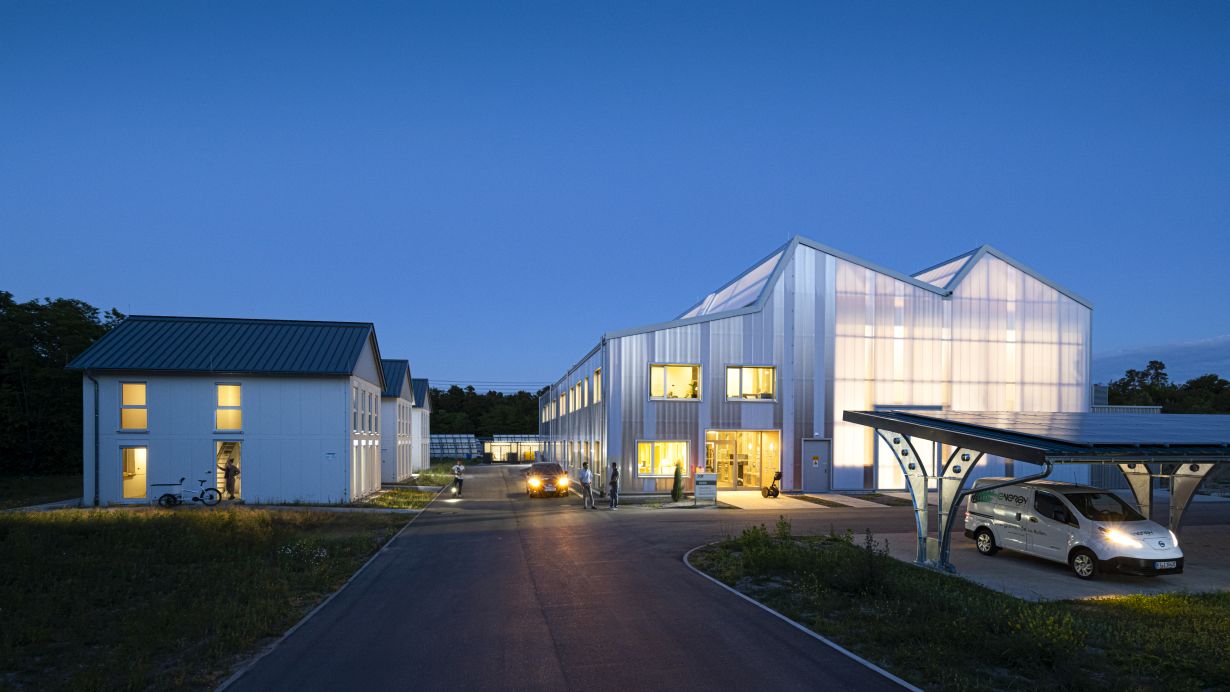Smart networking, control, and optimization of power, heat, and gas supplies are the keys to a climate-neutral energy system. Karlsruhe Institute of Technology (KIT) possesses a unique research infrastructure for the transdisciplinary development and testing of new strategies and technologies for sector coupling on the prototype scale. On their way towards a new, holistic modeling system, researchers have now reached first milestones. The Federal Ministry of Education and Research (BMBF) has agreed to increase funding for the SEKO (sector coupling) real-world lab by EUR 10 million to a total of 16.5 million euros.
“We want to model all forms of energy in an integrated way and to generate, store, and convert them as needed,” explains Professor Joachim Knebel, who coordinates the SEKO research project at KIT. Within this project, new, promising computation models and instruments are developed to model not only the behavior of single components, such as batteries, gas turbines, electrolyzers, convertors, or generators in real time and on the basis of real data, but also the interaction of these components in the context of the expected need and current grid capacities. “At our real-world laboratory, we will be able to model on the prototype scale or as a digital twin all processes and pathways for energy conversion, from power-to-X to co-generation to geothermal energy applications, which will be possible in future,” Knebel says.
Load Prognoses of Power, Gas, and Heat Grids
Among others, scientists have successfully developed a single model to simulate the thermal behavior of buildings. It can be used to prognosticate heat consumption, heat and cold needs, and the resulting loads of the power, gas, and heat grids. The data required for this purpose were provided by the model houses of the Living Lab Energy Campus (LLEC). Its office buildings and laboratory halls are used by KIT staff in real operation and reflect the whole range of technologies for heat and cold supply. These data were evaluated and further processed at Energy Lab 2.0. LLEC and Energy Lab 2.0 are the two important pillars of the SEKO research infrastructure. Energy Lab 2.0 consists of a photovoltaic field, a large battery storage system, a gas turbine test rig, and container systems for methanation (power-to-gas) and power-to-liquid synthesis, as well as of the Smart Energy System Simulation and Control Center (SenSSiCC), the control center of the real-world lab.
Integrated Energy Supply Scenarios
“SEKO enables our young team of researchers from various institutes and departments to work on a new modeling approach that integrates the evermore complex scenarios for energy supply,” Knebel says. “With the help of this model, we can describe and assess potential transformation pathways aiming at climate neutrality until 2045.” So far, BMBF has funded the four partial projects of SEKO with EUR 6.5 million. These projects cover electric distribution grids, the building heat sector, gas supply technologies, and information and communication technologies for a smart, stable, and secure energy system. The increase in budget by EUR 10 million now allows to start another two packages that focus on building-integrated CO2 separation and conversion and on a novel power-to-liquid process. The first work package addresses system design, operation behavior, and energy consumption of a new generation of air conditioning and ventilation systems, by means of which buildings might be turned into CO2 sinks by direct air filtration. The second work package covers validation at a pilot plant of an integrated process for the production of synthetic methanol from CO2 from biogas facilities or sewage treatment plants. The process synergetically combines the production of synthetic methanol from CO2 of biogas facilities or sewage treatment plants with the production of green hydrogen by electrolysis.
The SEKO research project is scheduled to end in March 2023. Various KIT institutes are involved, namely, the Institute for Micro Process Engineering, the Institute for Automation and Applied Informatics, the Institute for Technical Chemistry, the Institute of Electric Energy Systems and High-Voltage Engineering, the Institute for Technical Physics, the Institute of Electrical Engineering, the Light Technology Institute, and the Engler-Bunte Institute.
For more information, click: https://www.esd.kit.edu/85.php
Video on KIT‘s Energy Lab 2.0: https://youtu.be/-PlNMDSDv-U
In close partnership with society, KIT develops solutions for urgent challenges – from climate change, energy transition and sustainable use of natural resources to artificial intelligence, sovereignty and an aging population. As The University in the Helmholtz Association, KIT unites scientific excellence from insight to application-driven research under one roof – and is thus in a unique position to drive this transformation. As a University of Excellence, KIT offers its more than 10,000 employees and 22,800 students outstanding opportunities to shape a sustainable and resilient future. KIT – Science for Impact.

